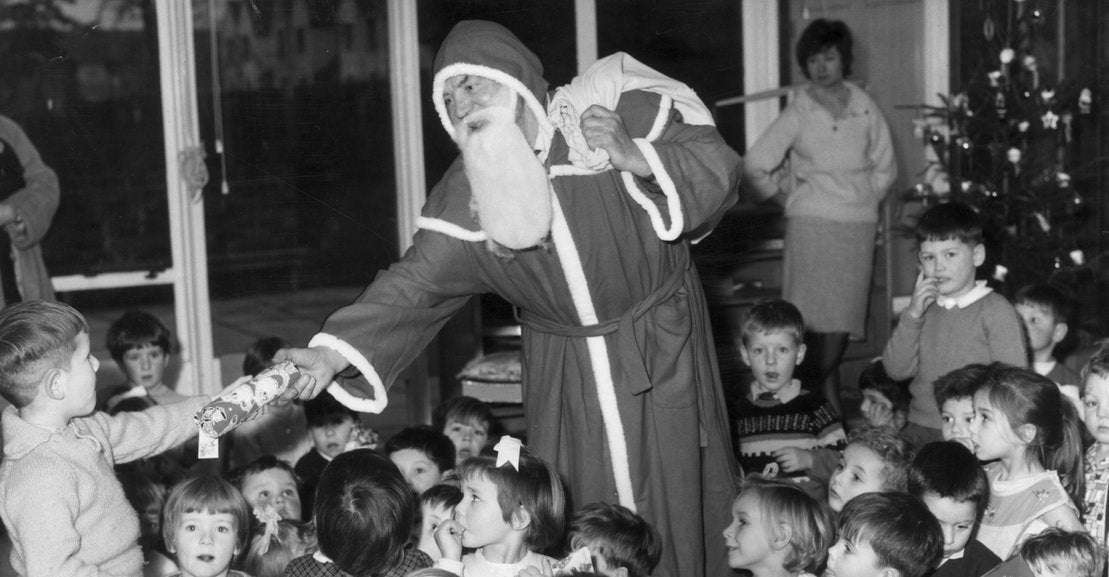On a cloudy Christmas Eve in 1907, Mary McGann, a 10-year-old Irish girl living in Hell’s Kitchen with her younger brother and mother, wrote a letter to Santa Claus. “I am very glad that you are coming around tonight. My little brother would like you to bring him a wagon which I know you cannot afford. I will ask you to bring him whatever you think…. Please bring me something nice (sic) what you think best,” she asked. “P.S. Please do not forget the poor.”
The letter never made it to Santa; it was discovered 90 years later stashed in between the bricks of the tenement’s fireplace. But that same year, the New York City branch of the USPS informally implemented “Operation Santa,” an unusually whimsical government program that allowed Postal Service employees (and volunteers with the “Santa Claus Association”) to respond, as Santa, to the thousands of New York children attempting to contact St. Nick. Postmaster Frank Hitchcock would integrate the program in 1912 to include the entirety of the Post Office, making “Operation Santa” an official government program. After 1940, the program allowed charitable organizations, private firms, and laypeople to “adopt” the letters of kids living in poverty and fulfill their Christmas wishes. The film Miracle on 34th Street references the endeavor, and Johnny Carson made a habit of reading some of the letters on The Tonight Show. The program has grown to the point where it connected 13,000 children to donors, a total that may well be doubled in 2020. This year, the letters have been digitized, and if you’re interested in adopting a letter, you can go to the Operation Santa website and browse through the hopes and desires of thousands of children across the country.
But what these letters demonstrate, far better than any PSA or statistical model, is how violent American poverty truly is. They also provide a counterbalance to the ways childhood poverty is depicted in popular media, where poor kids often serve as a way for a protagonist to demonstrate their generosity, from Tiny Tim in A Christmas Carol to the demented poverty porn of the holiday pop hit “Christmas Shoes.”

well_uh_yeah on December 26th, 2020 at 15:56 UTC »
I started reading a few of them one day and ended up in tears. The simple, mundane things those kids were asking for were just killing me.
chillfollins on December 26th, 2020 at 15:40 UTC »
We have changed from striving to become the greatest civilization in human history, to declaring it so and closing our blinds to the problems befalling us. Americans even DEMAND their fellow citizens stand for the flag, not pondering whether or not addressing their issues might make them revere the flag truly. We want patriotism, but we don't want to do the work to cultivate it. We want greatness, but we don't want to do the work to cultivate it. Our 'puritan work ethic' is laid laughably bare by the reality that we have much work to do and the rich are not pulling their weight.
ViolettePlague on December 26th, 2020 at 15:37 UTC »
My husband one day asked me what my favorite Christmas gift was growing up and I told him an electric blanket. My father kept the house so cold but I was allowed to turn on the blanket 15-30 minutes before going to bed so my bed would be warm at night. I feel like I was fortunate where we always had food and I received a couple new outfits a year. My stockings were always filled with school supplies and fresh fruit.